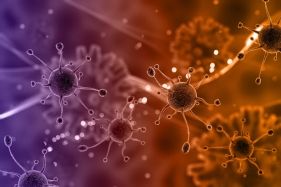
Online
Co-organiziers Leigh Frame, PhD, MHS, at leighframe [at] gwu [dot] edu (leighframe[at]gwu[dot]edu) or 202-994-0184, or Brett Shook, PhD, at brettshook [at] gwu [dot] edu (brettshook[at]gwu[dot]edu) or 202-994-1285
Join us for the GW Biomedical Cross-disciplinary Seminar Series: Connecting Academic Research & Inquiry Across Disciplines. This virtual lecture series explores a new cross-disciplinary topic each year. The goal is to promote networking and collaboration in translational health among researchers, health care providers, and policy makers from different disciplines to shift the paradigm—from seeking a cure to developing a strategy of prevention. The 2021-22 seminar series topic is metabolic syndrome.
This lecture on Attenuating Deleterious Inflammation During Metabolic Diseases will be preseneted by Lev Becker, PhD, associate professor of the Ben May Department of Cancer Research, Committee on Cancer Biology, and Committee on Molecular Metabolism and Nutrition at the Division of the Biological Sciences at the University of Chicago. Dr. Becker’s lab combines proteomic, bioinformatic, immunologic, and functional approaches to study innate immune cells in an unbiased manner across a spectrum of diseases and develops therapeutics to target them.
Dr. Becker's work has been published in prestigious scientific journals including Cell and Nature. He has received several awards for his research, including: the Duckworth Fund Commercial Promise, J Clifford Moos, and Janet Rowley Discovery Fund awards from the University of Chicago, and the Young Investigator and Fletcher Scholar awards from the Cancer Research Foundation. His lab is currently funded by the National Cancer Institute, National Institute of Diabetes and Digestive Kidney Diseases, and National Heart, Lung, and Blood Institute. He earned his Ph.D. in biochemistry from Queens University and completed his postdoctoral studies in proteomics and macrophages at the University of Washington.